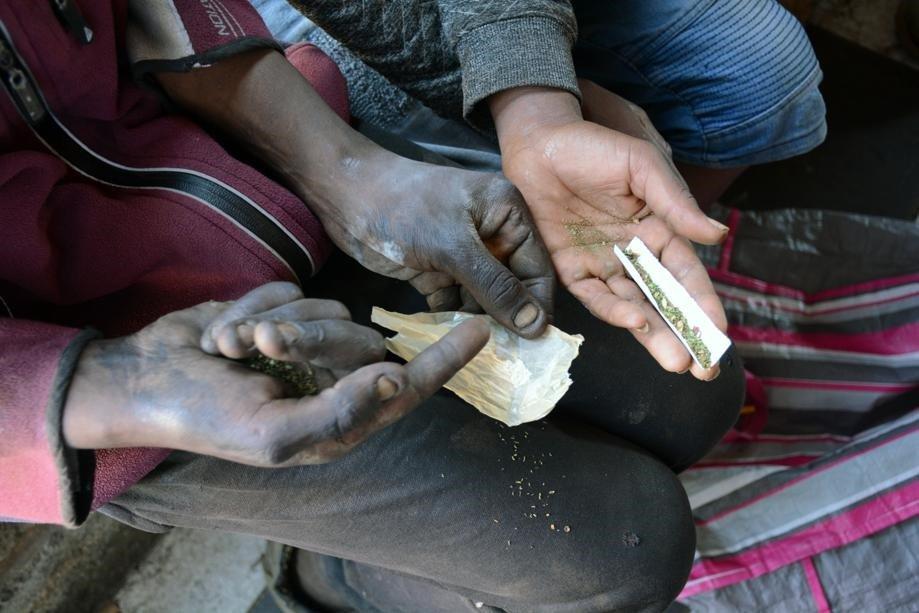Africa-Press – South-Africa. The intersections of substance abuse and sexual and gender-based violence demonstrate the need for collaborative interventions, writes the Centre for the Study of Violence and Reconciliation’s
Sinqobile Makhathini.
South Africa has a daunting drug problem.
Post-1994, the proliferation of drugs on the country’s streets has triggered a myriad of issues associated with substance abuse. Drugs such as nyaope and tik are accessible and affordable even for unemployed youth in townships with the drugs priced between R30 and R50.
The work that the Centre of Study of Violence and Reconciliation has done shows that these drugs have not only caused far-reaching impacts on addiction but have also fueled a great intersection of violence, such as sexual violence which includes rape as well as assault cases in communities.
Substance abuse has contributed adversely to the ongoing fight against sexual gender-based violence. With this unbridled violence in Alexandria township, for example, girls and young women have fallen vulnerable to rape and sexual assault in large numbers. Other townships such as Kagiso have also reported a surge in sexual assaults directly linked to these two drugs in particular.
Kagiso and Alexandra
The latest quarterly crime statistics rank Kagiso and Alexandra at 27th and 9th, respectively. That was under the category of 30 stations to report rape cases in the third quarter. The pervasive nature of sexual violence in South Africa raises concern about the extensive impact that the violence has on the individual and the community.
In such instances, factors such as substance abuse in the communities demonstrate their elevated risk of gender-based violence and more so, for cases of sexual violence. In the community of Kagiso, officials have reported the rising account of young women and in certain instances where minors are found violated in spaces of drug use.
That not only demonstrates the extent of sexual violence in the community but also the crippling nature that substance abuse has contributed to the existing scourge of violence in society.
Furthermore, drug houses, which are commonly known as spaces for illegal drug trade and consumption, have been found to be a prevalent feature in Kagiso and Alexandra, also emerging as hotspots for sexual violence in the two communities. In certain instances, drug houses are abandoned homes that remain a shadow to the community and other arms of authority, as they often go undetected.
It is crucial to identify and recognise the marring effect Apartheid has had on townships such as Kagiso and Alexandra. Kagiso and Alexandra emerged in the early 1900s as settlements with large informal settlement populations.
These communities served as sources of cheap labour, with limited resources and their presence was coined as a “necessary evil” to be tolerated but not condoned under the system of Apartheid. There is a direct link between these townships and the current social malaises of drug use and sexual violence.
Structural violence
This structural violence not only affects the quality of democracy experienced by citizens today, but also forms a kind of social loop where deprivations continue to feed into the culture of violence and substance abuse in both Kagiso and Alexandra.
The ongoing inequalities associated with the redistribution of wealth are part of what scholars like Amartya Sen refer to as systemic social deprivations which continue to deter the process of expanding the freedoms that people in marginalised spaces can enjoy.
There is an interconnected nature between the need for development and empowerment of marginalised communities. By simply identifying this as true, we can find solutions to uproot the drug problems in townships such as Kagiso and Alexandra.
South Africans need to face the gruelling poverty trap head-on in order to deal with the scourge of substance abuse and sexual and gender-based violence.
The intersections of substance abuse and sexual and gender-based violence demonstrate the need for collaborative interventions. These include both local and national dialogue on how to deal with the root causes of unemployment and social deprivations as well as the social conditions faced by these communities.
Such coordinated responses should engage both the community and national structures of governance to help develop violence-free realities for women and children.
– Sinqobile Makhathini is a Research Fellow at the Centre for the Study of Violence and Reconciliation.
To receive Opinions Weekly, sign up for the newsletter here
.
*Want to respond to the columnist? Send your letter or article to [email protected]
with your name and town or province. You are welcome to also send a profile picture. We encourage a diversity of voices and views in our readers’ submissions and reserve the right not to publish any and all submissions received.
For More News And Analysis About South-Africa Follow Africa-Press






